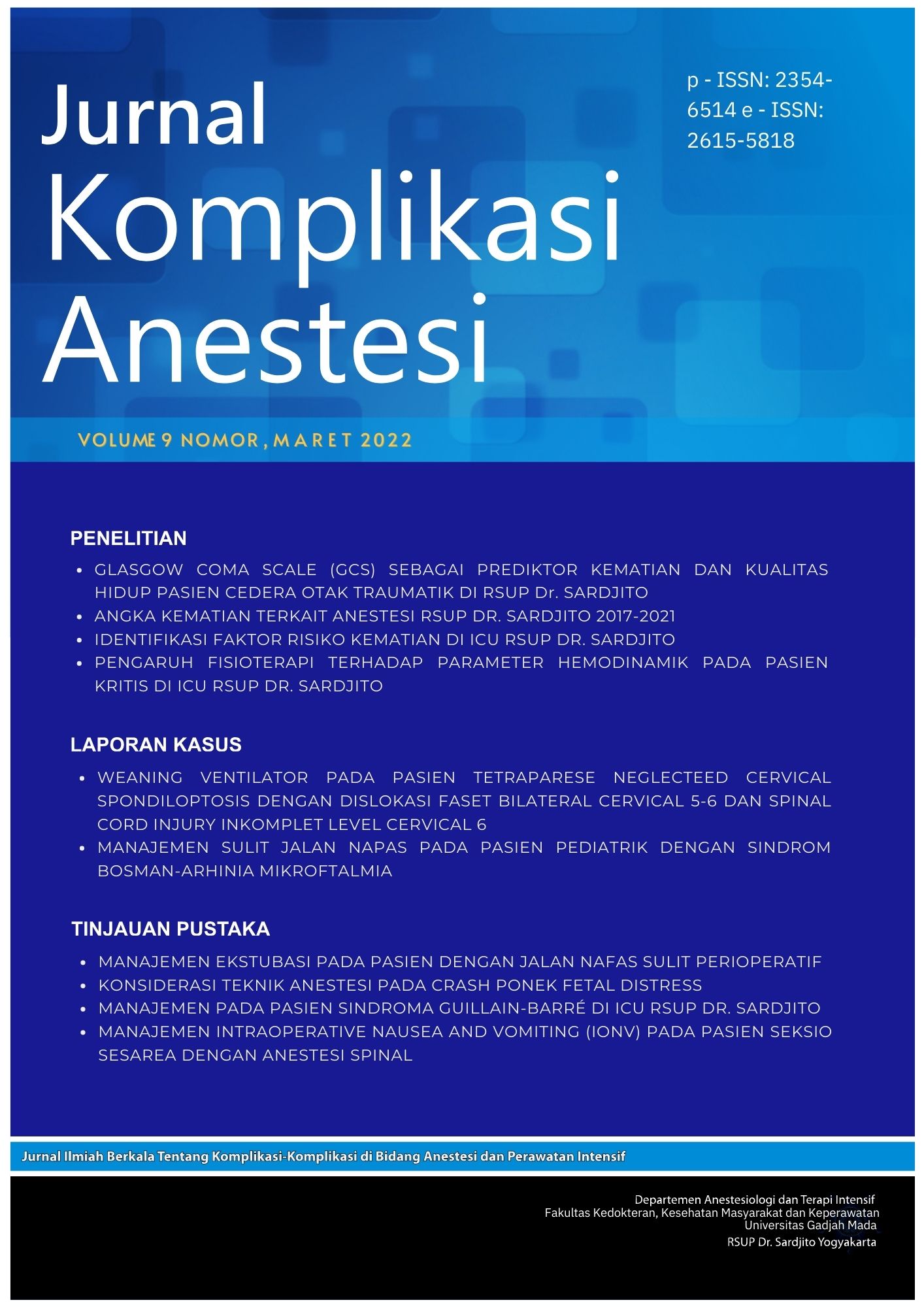Glasgow Coma Scale (GCS) Sebagai Prediktor Kematian dan Kualitas Hidup Pasien Cedera Otak Traumatik di RSUP Dr. Sardjito
Abstract
Background: Glasgow Coma Scale (GCS) as one of the most important predictors and a key measure in neurological assessment after brain injury. Apart from mortality, GCS is also a predictor of quality of life that can be measured using the Extended Glasgow Outcome Scale (GOSE). GOSE is a global assessment of independent living and social reintegration that is widely used as an outcome measure in brain injury research, to analyze long-term functional outcomes.
Methods: This study used a retrospective cohort observational study design that aimed to predict mortality and quality of life using the Glasgow Coma Scale. This research has been conducted at the Medical Record Installation of Dr. Sardjito Hospital Yogyakarta using data from patients whom are treated with a diagnosis of traumatic brain injury at Dr. Sardjito Hospital from January 1, 2020 to December 31, 2020 retrospectively. Quality of life was calculated using the GOSE interview questionnaire. The relationship of GCS variables to mortality and quality of life was tested by the unpaired correlative hypothesis test followed by multivariate analysis with logistic regression methods.
Results: There were 174 research subjects with a mean age of 37.51 (± 14.17) years, 124 male (71,3%) and 50 female (28.7%). Subjects GCS score < 8 had a higher risk of death than those with GCS score 13-15 (p<0.001, RR=18.3). Subjects with GCS score 9-12 had a higher risk of death than those with GCS score 13-15 (p<0.001, RR=9.71). Subjects with GCS score < 8 had a higher risk of unfavourable outcome than those with GCS score 13-15 (p<0.001, RR=9.49). Subjects with GCS score 9-12 had a higher risk of unfavourable outcome than those with GCS score 13-15 (p=0.001, RR=4.93).
Conclusion: GCS on admission can be a predictor of mortality and quality of life for traumatic brain injury patients
Copyright (c) 2022 Desy Chery Marlyn Taneo, Sudadi, Calcarina Fitriani Retno Wisudarti

This work is licensed under a Creative Commons Attribution-NonCommercial-ShareAlike 4.0 International License.
The Contributor and the company/institution agree that all copies of the Final Published
Version or any part thereof distributed or posted by them in print or electronic format as permitted herein will include the notice of copyright as stipulated in the Journal and a full citation to the Journal.

















